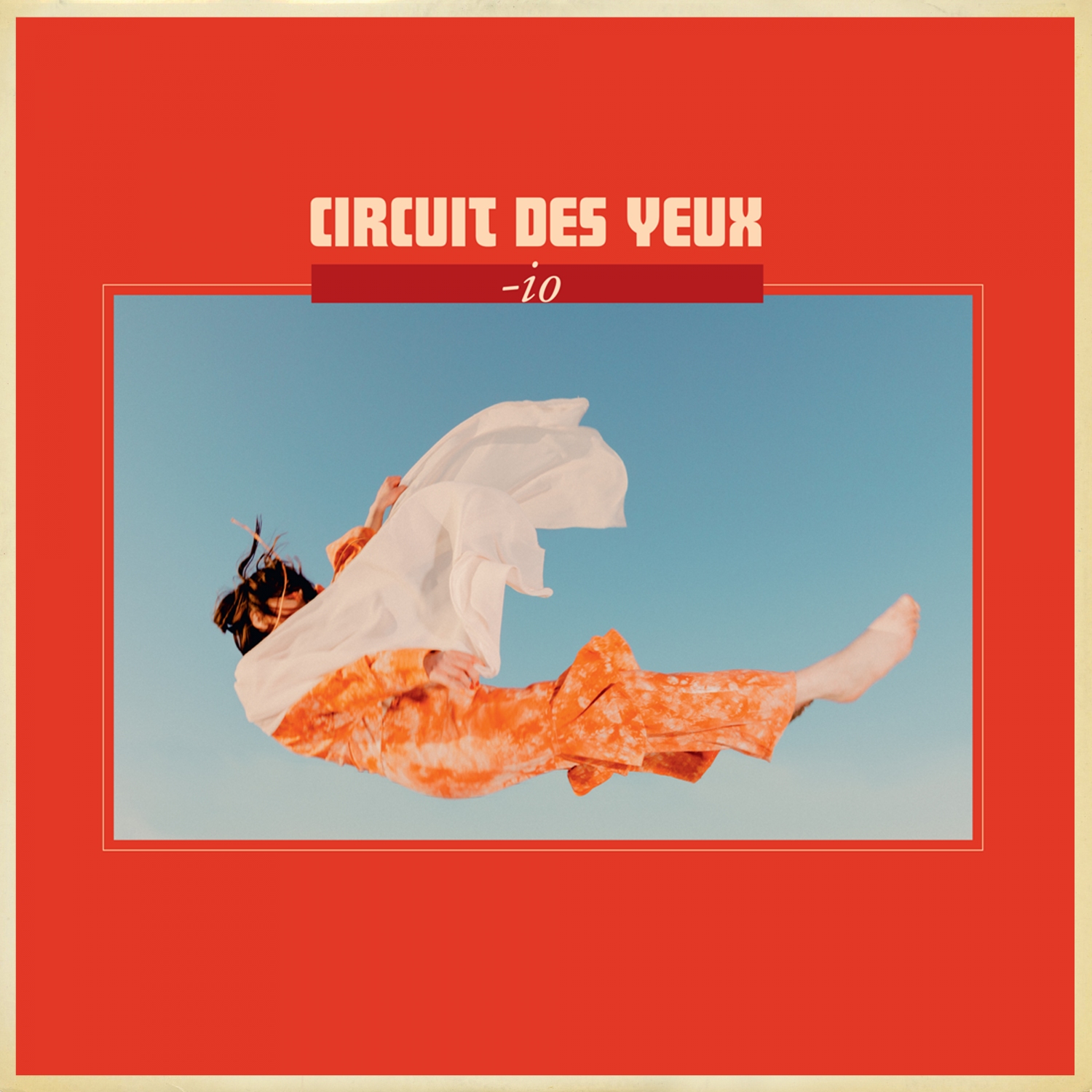Grief is a largely insular process, but that doesn’t mean it’s quiet or colourless. Quite the opposite. On her new album -io, Haley Fohr aka Circuit Des Yeux investigates the turmoil, confusion and hopelessness of a deep personal loss and translates it into vivid words and sounds that map her inner soulscape as she processes life, death, and existence as a whole.
Unsurprisingly, losing a close friend through suicide took the wind out of Fohr, and when she went to an artist retreat in Florida to work on new material, she found she couldn’t get anything out. Instead she painted, created a few snippets of sound on an organ rather than her usual guitar, and tried to make the most of the luxury of the location – particularly in the infinitely orange sunsets that she watched each evening.
Returning to her native Chicago, amidst the ongoing pandemic, Fohr retreated into an inner world – and started tracing it with her musical mind. Despite writing solo for the first time ever, the depth and mass of what she found inside herself pushed her to create the grandest album of her career, with arrangements for a 24-piece orchestra included on almost every track. She also found the language of the universe harmonised with her visions of her inner world, and she named her own planet within it: -io.
From the very beginning of -io, the drama is writ large. The introductory “Tonglen | In Vain” features 30-seconds of bows sliding cinematically on violin strings – it sounds like the camera refocusing, or the atmosphere repressurising as we enter -io. First proper song “Vanishing” throws us straight into a plummeting body, booming drums cascading downwards through space as jagged violins describe the wind whistling by on all sides, all the while Fohr’s elegiac baritone wishes goodbye to dogs, goodbye to laugh tracks, goodbye to aircraft – goodbye to light itself.
This falling body becomes a nothing, a non-entity, just a point of view in the infinity of the inner universe. By the organ-led hymn “Sculpting the Exodus” she wonders “is the signal fading?” – has she really disconnected herself from everything? But soon, perked up by a choir of disembodied voices, she realises “the signal goes on repeating” – life continues, with or without her, whether she likes it or not. As a slow-motion tsunami of strings rises up behind her, she realises she can’t give up yet: “together we shave down the meaning of the sun.”
A couple of tracks later in the outstanding “Neutron Star”, Fohr’s shape is snatched out of its non-existence and she finds herself “becoming the object / an idea bursting at the seams.” She is once again reformed in the midst of a truly magical string and horn arrangement that seems to dance and hop with the sheer miraculous joy of creation, bringing even more heft to the song’s final message: “descend bold traveler and attain the center of the earth.”
Not every song on -io is directly tethered to this celestial imagery, but even those grounded in concrete reality bring with them a supernatural sheen, seen from deep with Fohr’s idiosyncratic world view. The rhythm-driven “Dogma” is a desperate examination of the numbness of modern society, with Fohr dispassionately embodying those who follow blindly on the maxim “if it’s good for you then it’s good for me”. The following “The Chase” pulls us headfirst into a panic attack, haggard guitar strums and Fohr harshly whispering “the walls are caving in like the valley in your mind” creating a truly claustrophobic experience.
The free-floating “Argument” is exactly what its title suggests: a disagreement between close friends or lovers, but, not wanting to focus on the “anger in the air”, Fohr instead describes the tangential minutiae of the dust dancing in the sunlight. This is perfectly animated by the rising and falling waves of strings, before her voice gets modulated downwards into a pit of despair as she makes the cryptic assertion “an angel with an amygdala is just an alien waiting to be seen” – which all combines to make a song of strain and heartbreak unlike one you’ve ever heard before.
The stark piano ballad “Stranger” finds Fohr admiring someone she passes on the street, her simply spectacular voice turning the repeated realisation “I might have tried what you’ve tried” into a whole parallel universe of possibility. By the time of the closing “Oracle Song” she is looking to a young person with sadness and compassion, wishing them strength and greater fortunes than she herself had. She is truly back in touch with humanity after some time deep inside herself.
The process of -io might have started with a life ending, but it ends with a new life beginning. Much like those long orange sunsets she would watch in Florida, -io signals the end of a period of Fohr’s life, but not without giving off an enormous burst of intense light, warmth and colour before it goes – and then returns anew. Over the course of the album, we seem to hear Fohr coming to terms with the vastness of mortality, and realising that it is in itself beautiful – it is what makes life precious. With the enormity of that acceptance gradually arriving, her soul emerges, no longer eclipsed by grief, shining brighter than ever.


